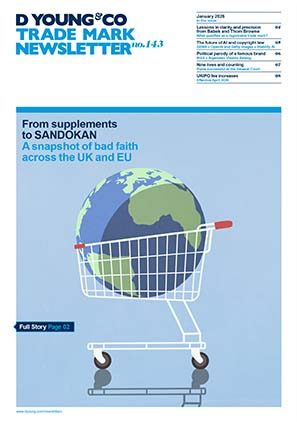Sound advice required: revived audio brand has trade marks revoked
In a case that presents a warning to anyone considering resurrecting a “dead” brand, the UK High Court in Aiwa Co. Ltd v Aiwa Corporation [2019] EWHC 3468 (Ch), on appeal from the UKIPO, held that the sale of second-hand goods was not sufficient to fulfil criteria of “genuine use with consent”.
Background
In its heyday, the AIWA brand was synonymous with quality hi-fi equipment. With the passage of time and changes to the market, the company fell on hard times and it ceased to manufacture new equipment from 2008. In a latter-day resurgence of interest, two separate companies made an attempt to resurrect the brand: Aiwa Limited, having acquired the trade marks from the previous owner; and Aiwa Corporation. The dispute began when Aiwa Corporation applied for the trade mark “AIWA”. Aiwa Limited opposed Aiwa Corporation, citing three of their five trade marks. Aiwa Corporation subsequently filed revocation proceedings against all five of Aiwa Limited’s trade marks on the basis of non-use for a five year period.
First instance
The question was whether Aiwa Limited had made genuine use of the marks with the consent of the proprietor within a period of five years, as required under the relevant provisions of the Trade Marks Act.
As there had been no new products for over five years, the hearing officer focussed on Aiwa Limited’s claim that sales of second-hand products counted as “use”.
The hearing officer concluded there was no consent from the original owner for pre-2008 goods, which equated to no genuine use. Limited’s marks were revoked and the opposition dismissed.
Appeal to High Court
Core to Aiwa Limited’s appeal was that the hearing officer had joined together the concepts of “genuine use” and “consent”, and that it was improper to say that because there was no proprietor consent therefore there can be no genuine use. The judge, Mr Justice Mann, confirmed that these concepts must be considered separately and it should not be assumed that the absence of consent automatically means no genuine use, although on the facts, consent may be an important element.
Consent
As there was no express consent from the proprietor in respect of third party sales, could there be implied consent? Counsel for Aiwa Limited argued that the concept of consent was the same whether it related to non-use, exhaustion, or infringement. In other words, exhaustion of rights is a form of implied consent to onwards sales of second-hand products, which in turn was capable of being consent to genuine use of the mark.
The judge dismissed this line of reasoning. He confirmed that exhaustion, instead, is an absence of rights, not that the proprietor has consented to the future use. Consent, therefore, implied or otherwise, does not arise from exhaustion and this part of the appeal dismissed.
Genuine use
In line with London Taxi [2016] FSR 579, the judge agreed that the appearance of the AIWA mark on second-hand goods is capable of performing an essential function of a trade mark, but for second-hand sales something more is required. On the facts, Aiwa Limited’s evidence of second-hand sales was “rather thin”, being only a few third party advertisements on eBay and Amazon, and no evidence of actual sales or marketing with involvement of the proprietor. Had there been involvement of the proprietor, it may have moved it closer to fulfilling the criteria of genuine use, but on the facts it did not. As such, there was no activity capable of creating or maintaining a market share for the relevant goods or services and, although his reasoning was different from the hearing officer, the conclusion was the same and the appeal dismissed.
In short
Reviving old brands is surprisingly common, and it is fraught with difficulty. Although unsuccessful for the proprietor of the trade marks in this case, the judge reinforced the message that when it comes to genuine use and the second-hand market, it is always a fact-based assessment. Therefore, this case does not establish a principle, as such, but proprietors of “revived” marks should take heed.
Case details at a glance
Jurisdiction: England & Wales
Decision level: High Court
Parties: AIWA Co. Limited (appellant) and AIWA Corporation (respondent)
Date: 13 December 2019
Citation: [2019] EWHC 3468 (Ch)
